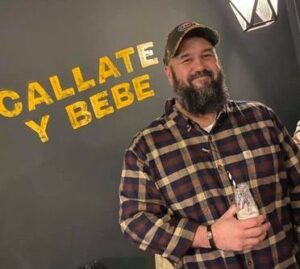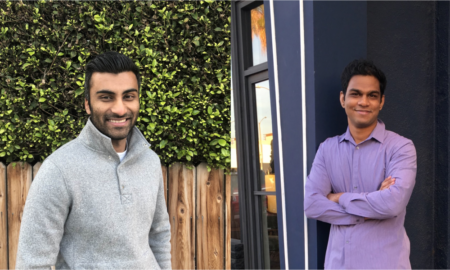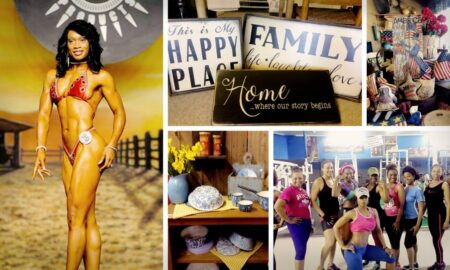
Today we’d like to introduce you to William Dylan Powell.
Alright, so thank you so much for sharing your story and insight with our readers. To kick things off, can you tell us a bit about how you got started?
Every solid writer has always loved to read first, and that’s where I started too. I come from a family of readers where the house basically shut down not long after dinner and everyone goes off and reads. Of course, I didn’t ever want to read the things they wanted me to read in school and, honestly, I wasn’t a great student. Or rule-follower in general. I didn’t grow up being around writers and it never occurred to me that people actually do that for a living.
My father, though a talented artist in his own right, worked for Schlumberger. My mother was, among other things, an accomplished artist as well. But I always just assumed I’d grow up and join corporate America. So I was a late creative bloomer, deciding to become a professional writer in my mid-twenties. I just had a feeling I’d be good at it, and it sounded cool. I had zero experience, understanding of the craft or business and absolutely zero free-market validation that I could make a single dollar writing. Just a feeling that I could. And, hey, I was in my twenties so I gave it a chance. I started doing commercial copywriting which is still how I make most of my money. But for editorial, I started small with magazine articles and essays. Then I published my first book, Houston Then & Now, in 2003. A few years later, I started dabbling in fiction- specifically mystery stories. In 2006 I had my first short story published in a magazine called Ellery Queen’s Mystery Magazine, and the piece won a minor award for new mystery writers. After that, I was hooked.
Writing can be hard, and the lifestyle isn’t for everyone. I’m up at 5 am hustling with a coffee in front of my computer most mornings. But the work came pretty naturally to me and twenty years just flew by. I kept up the commercial work, which I got pretty good at over the years, and augmented my income with non-fiction books and short fiction, including a few crime novellas and a true-crime book. I wrote a number of local interest books about Houston. In 2018 one of my crime stories was featured in the Best American Mystery Stories collection alongside stories by T.C. Boyle, James Lee Burke, Lee Child, Michael Connelly and Joyce Carol Oates. My latest book, Houston Culture Shock, is my ninth book.
I’m sure you wouldn’t say it’s been obstacle free, but so far would you say the journey have been a fairly smooth road?
Professional writing is rarely a smooth road, but my love of the work has made it worth the drive. I mean, it’s tough to make a comfortable living as a writer. It’s one thing if you’re a stay-at-home-spouse writing poetry for literary magazines. But if you need to make a real living, you’d better have some hustle. You have to make time to write. That time is always at the expense of something else you’d also like to be doing: spending time with friends or family, exercising, even just sleeping late or cleaning the house. So there’s the discipline side of it. And you also need some pretty thick skin. Everyone will be told that their ideas are stupid, that they’re not talented, that this specific piece of work is awful, etc. You get hundreds of rejection letters even when you’re amazing; there’s always someone telling you that you suck. Most writers find even close family and friends tend to discourage them whether or not they realize it. And then there’s the actual writing part, putting out a quality product. So it’s definitely not a career for the faint of heart. But I genuinely love the work. Whatever I’m into—it’s just fun for me. It rarely feels like work. And that’s what’s made a 20-year career possible.
Thanks – so what else should our readers know about your work and what you’re currently focused on?
It’s funny that you ask what I specialize in because apparently, I have a hard time deciding. The thing I hear most is: “Where do I know you from?” And the answer depends on who you are and what you’re into. For people who just live in Houston, most people probably know me from my local interest books like Houston Culture Shock, Secret Houston and Houston Then & Now. Some of these titles are funny, a lot are given as gifts and they seem to pop up all over town like squirrels. Walk into any random waiting room or lobby in the loop and you’ll find a bunch of out-of-date magazines and then probably one of my books. I show up on TV now and then promoting these titles and they’re always fun; people like reading about local stuff and it gives me an excuse to get out and do cool things.
If you’re really into Texas-based crime fiction, you might know me as a writer of short stories and novellas. I wrote a book about murder a few years ago, and I’m somewhat regularly published in crime fiction circles. I had a story in Ellery Queen Mystery Magazine last month and another in a crime fiction anthology that just released this week—Jukes & Tonks, edited by Michael Bracken and Gary Phillips (Down & Out Books). That was fun; a collection of stories involving honky-tonks and juke joints. I have a private eye novella coming out next year and am on track to wrap two novels this year: one a crime caper and another a martial arts action fantasy published under a different name.
If you’re a businessperson, you might know me from my commercial work. I’m the Creative Director at a local marketing firm, where I put my writing skills to work helping corporations make money. It may sound boring to some people, but it’s actually pretty fun and can be creatively challenging if you hold yourself to a high standard. So that’s the corporate side of my work. I actually like having high-stakes corporate team projects that offset the more whimsical things I do; it helps me build skill sets and think strategically. Plus, people get weird if they spend too much time alone, and this kind of things keeps me around other people; it’s good for me.
What connects all of these things? Well, they’re a lot of freakin’ work, hahaha. As a writer, I definitely know people who work harder than I do. I know a few here in town, one in Waco, one in Mississippi, a few in LA and several in NYC whose hustle all puts me to shame. But I don’t know THAT many writers who work harder than I do. It’s just so easy not to. I forgot where I read it but if you sell shoes and don’t go to work, someone is going to miss you. If you’re a writer and don’t go to work, probably nobody really much cares.
Risk taking is a topic that people have widely differing views on – we’d love to hear your thoughts.
Well, the biggest risk I’ve taken is just becoming a writer in the fist place. I started in my late twenties. I had never met anyone who wrote for a living. I had never sold a single piece of writing. Who even paid people to write? No idea. And I had just gotten married. But I just had a feeling this was somehow for me. I literally went to a book store and bought ten books on how to write. I made a promise to myself that I wouldn’t accept another dollar unless it came from writing; I was afraid I’d take the easy way out and just get another corporate job and not follow up on what I really wanted to do. We starved for a few years, but I stayed committed. I sold some work, got a few copywriter jobs and after a few years, the risk paid off and I’d completely reinvented my professional self.
If we’re taking about risk-taking for creative projects, I feel like there is good risk and bad risk. You need to seek out one and avoid the other. Good risk is attempting a creative project that’s a bit ambitious for you and stretches your skill set, one you’re not sure you can pull off. Or maybe you’re really, really passionate about something and can execute strong but are a little unsure of the market right now. Those are good risks, and you need to push all of your chips into the middle of the table. Bad risks are when you completely ignore the market, fail to do your homework, stop learning new things, aren’t working with a team you can trust, don’t bring your A Game or don’t have a passionate vision for what you want the project to be. If you’re taking those kinds of risks, that’s a bad place.
The biggest risk of all, though, is to not do anything, fail to finish projects, put off the work, etc. Someone once told me every creative project you complete is like a lottery ticket. The risk isn’t that your number won’t come up. The risk is in not having any tickets.
Contact Info:
- Email: dylan@houstonwriter.com
- Website: www.houstonwriter.com



















